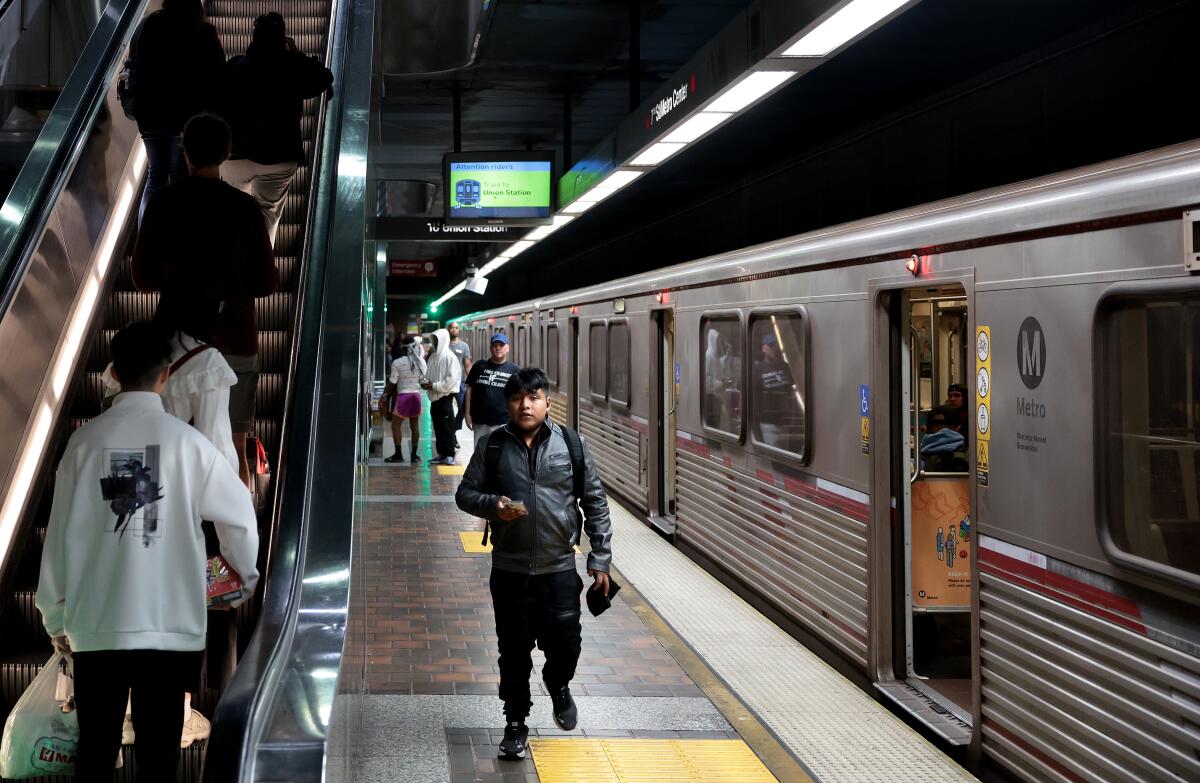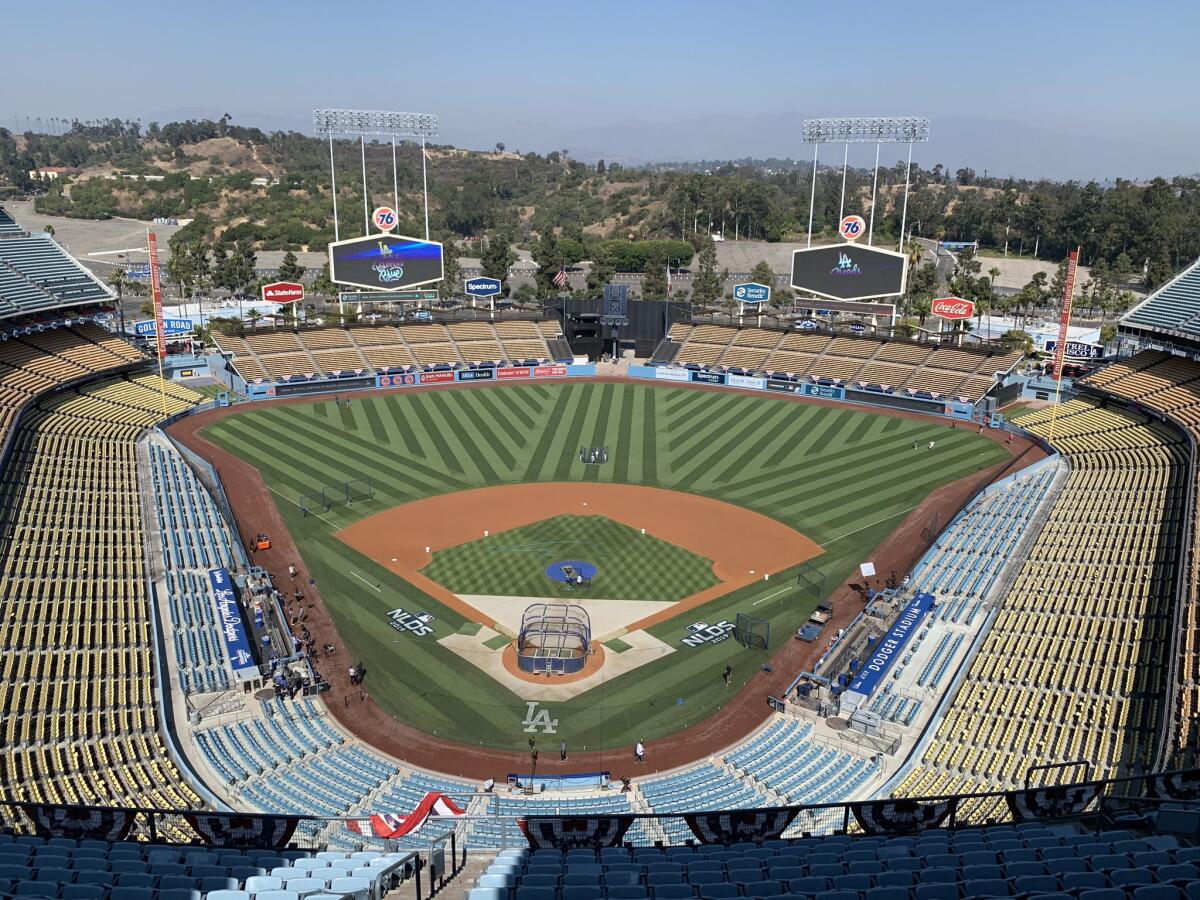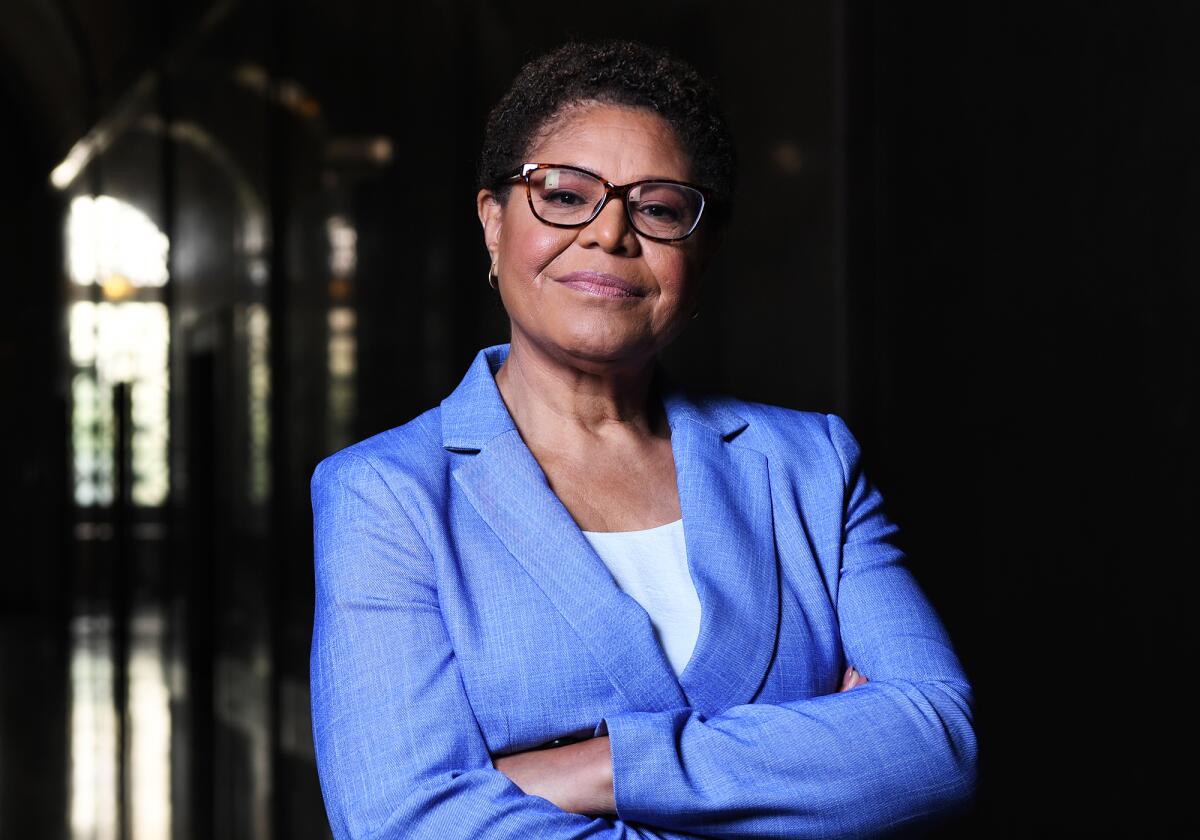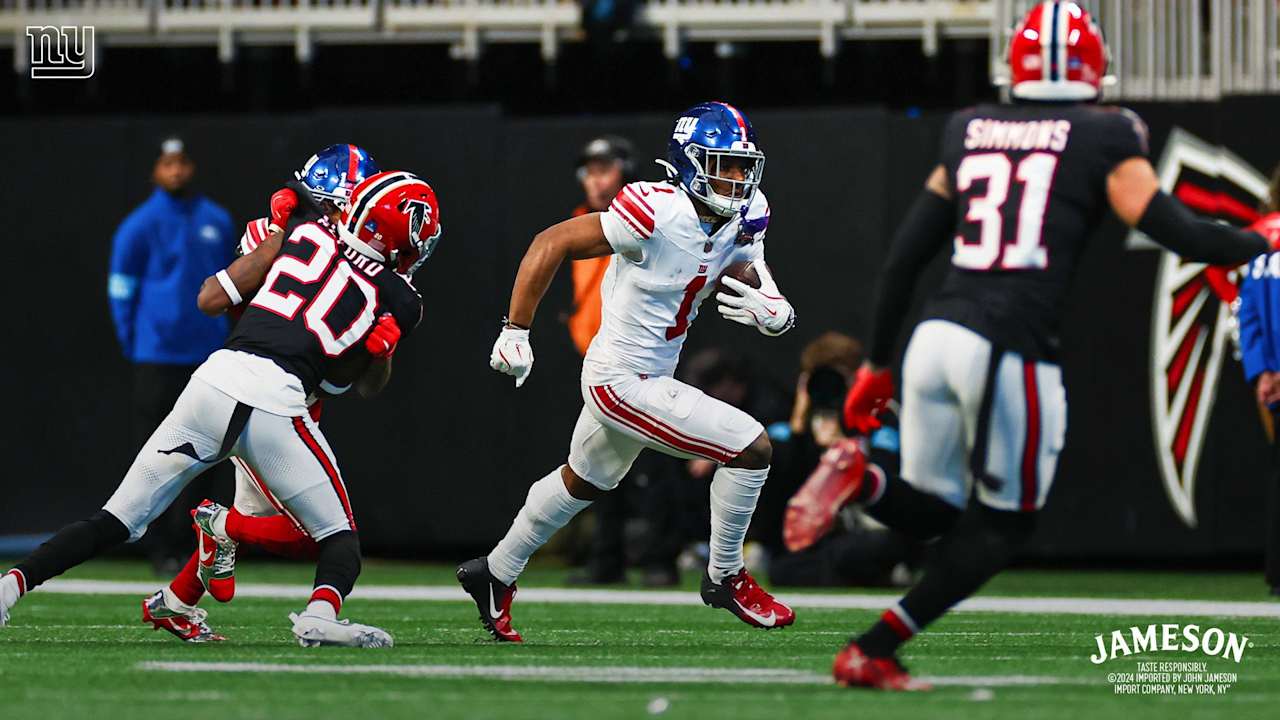World
A humbled, scandal-plagued New York faces L.A. with less superiority, snark

When the Los Angeles Dodgers and the New York Yankees last met in the World Series in 1981, there was no question which city was top dog.
The Yankees had beaten the Dodgers in humiliating fashion in 1977 and 1978 and jumped out to a 2-0 lead in the 1981 Fall Classic .
Beyond baseball, New York still held cultural domination. Despite going broke and struggling with crime, the Big Apple strode atop the world as the city, an electric place where anything could happen.
And some New Yorkers loved to mock Los Angeles, from the New Yorker Magazine cover showing L.A. as a dot from the view of 9th Avenue to Woody Allen dismissing L.A. as a city whose “only cultural advantage is that you can make a right turn on a red light” (which is, to be fair, a large cultural advantage).
Los Angeles had recently passed Chicago to become America’s second city, but it still felt far behind with its puny skyline, suburban sprawl and relative lack of cultural sophistication.
“We were in this very 1970s mindset. Everything car-oriented, smog everywhere,” said Paul Haddad, a Dodgers historian. Haddad remembers going to Dodgers games, and even if he didn’t bring a radio, he could hear the voice of Vin Scully as he walked through the crowd because so many other fans had their transistors turned on.
In a sign of things to come for both cities, however, the Dodgers rebounded from the 2-0 deficit to win the ’81 championship. The two teams are again meeting at Dodger Stadium for the World Series, starting Friday, and the civic power dynamic has shifted.
LOS ANGELES, CA – OCTOBER 25: Manager Tommy Lasorda #2 of the Los Angeles Dodgers hugs Steve Yeager #7 after he hit a homerun to give the Dodgers the lead as Pedro Guerrero #28 leads the charge out of the dugout during Game 5 of the 1981 World Series against the New York Yankees on October 25, 1981 at Dodger Stadium in Los Angeles, California. (Photo by Bruce Bennett Studios via Getty Images Studios/Getty Images)
(Bruce Bennett/Getty Images North America)
Fans can look out from the stadium parking lot to a different Los Angeles, dotted with skyscrapers spreading out across the basin. L.A.’s cultural cachet has also increased dramatically in those 43 years. There is even a subway — though New Yorkers would accurately argue that it does not compare. A recent video released by L.A. Metro, seemingly without irony, showed it’s a 25-minute walk from Dodger Stadium to the nearest Metro station. In New York, the train is about 100 feet from Yankee Stadium.
And New York? It is still New York, but these days it’s a bit humble. The city is in a state of chaos: Mayor Eric Adams has been indicted for allegedly taking bribes in exchange for favors for Turkish businessmen and diplomats. Many of his top aides have resigned or been pushed out as multiple federal investigations loom.
Adams — who says that every week is a hard week when you’re the mayor of New York City — told The Times that the biggest difference between the 1981 World Series and 2024 in New York is public safety. The last time the two teams faced off was in the midst of the crack epidemic; murders in 1981 were the highest on record at the time.
Adams remembers the battles between the Yankees and Dodgers in the 1970s, watching Mr. October — whom he called Jesse, but whom the rest of the world knows as Reggie Jackson.

LOS ANGELES, CALIFORNIA May 15, 2024-Passengers ride the Metro Red Line in Los Angeles Wednesday. (Wally Skalij/Los Angeles Times)
(Wally Skalij/Los Angeles Times)
“Watching him hit those home runs out of the park, that’s the one I remember the most,” he said, referring to Jackson’s three-home-run game in 1977.
He bet a classmate $2 that the Yankees would win. Smart.
Adams argues New York is safer and better as the 2024 World Series begins. But others are less optimistic about the current New York state of mind.
“The Yankees really do carry the hopes and dreams of many New Yorkers, since they are one of the only bright spots we have now as we watch the mayor and his coterie indicted by federal authorities,” said Evan Roth Smith, a New York City pollster and campaign consultant.
Roth Smith said the coming World Series reminds New Yorkers of a different time, when the Bronx Bombers seemed to reach the World Series every year, when they were part of New York’s post 9/11 comeback story.
After winning the World Series in 2009, though, the Yankees fell into a long championship drought, “and the trajectory of the city seemed to change over that time as well,” Roth Smith said. “That’s when the face of New York started to change — [increasing] cost-of-living issues, declining quality of life.”
Still, Roth Smith said, he’s not sure New Yorkers look to the other coast with envy — or at all.
“I think a lot of New Yorkers don’t think about anywhere other than New York,” he said.
Die-hard Angelenos feel the same way, in reverse.

Dodger Stadium
(Arash Markazi / Los Angeles Times)
“L.A. has long since passed the point where it needs to care at all about what New York thinks. L.A. is a complicated, world-class city on its own terms,” said David Ulin, a historian of Los Angeles who grew up in New York City. “There was more of that sense in 1981 of Los Angeles wanting to prove something. Partly that had to do with the fact that the same team had lost two consecutive World Series to the Yankees.”
For Ulin, and for many others raised in New York, hating the Dodgers was ingrained in the mind, like hating an ex. The Dodgers had abandoned them, abandoned the city.
“They broke my grandfather’s heart when they left,” Ulin said.
The city’s swaggering persona was epitomized by Yankees owner George Steinbrenner, who ran the team with an iron fist, pushing out managers and general managers only to reel them back in, then push them out again. He spent more than any other owner in baseball and transformed the Yankees in the minds of many purists into the Evil Empire.
The pugnacious owner even claimed to have gotten into a fistfight with Dodgers fans in an elevator in the Hyatt Wilshire Hotel in 1981 after the Dodgers won three straight in L.A. to take the lead in the World Series 3-2. No one knew whether to believe the fight was real.
“I showed up [at work] the next day with one of my hands bandaged saying, ‘I don’t know what happened but I had to deck the guy,’” said Mike Lupica, a longtime New York Daily News sports columnist who covered the 1981 World Series. “Just cheap New York humor.”
The Tuesday death of one of the stars of the 1981 World Series, Dodgers pitcher Fernando Valenzuela, threw into sharp relief how much Los Angeles has changed for Latinos, said Ruben Martinez, a professor of literature and writing at Loyola Marymount University.

Dodger pitcher Fernando Valenzuela races with Mike Scioscia in their first full workout since the strike on Aug. 1, 1981.
(Los Angeles Times)
“It’s poignant to think about how much his presence crystallized something that was in motion and that would emerge more clearly across the 1980s, which was the political and cultural presence of Latinos in this city. He was the harbinger of that,” said Martinez.
There were barely any Latino politicians at the time, Martinez said. The eviction of Latino families from Chavez Ravine in 1959 to build Dodger Stadium was still relatively fresh. Forty years later, things are different.
“We’re by no means a perfect, multicultural paradise. We’re riven by class and race divisions. But look at City Hall. Now we can have corrupt Latino politicians like we had corrupt Anglo politicians back in the day,” Martinez said.
If New York is mired in investigations orbiting City Hall, Martinez said, Los Angeles is barely emerging from its own City Hall scandal from 2022, when an audio tape featuring Latino councilmembers making racist or insensitive comments was leaked to the media, leading to the resignation of Council President Nury Martinez.

L.A. mayor Karen Bass
(Christina House/Los Angeles Times)
“The divide on the City Council reflects real divides on the streets of L.A. as well,” Martinez said.
While the city is not in a moment as fraught as 1992, when riots broke out in the streets following the acquittal of the officers who beat Rodney King, Martinez said there is a tension in the air. There’s a homelessness crisis intertwined with a fentanyl crisis on the streets, retailers are locking away more merchandise to deter shoplifters, metals thieves are making off with whole streetlamps, and sometimes destructive, sometimes deadly street takeovers are proliferating.
All these issues Los Angeles is preparing to manage as the Olympics come to town in four years, with the World Series serving as a sort of mini dress rehearsal for the international spectacle to come.
Mayor Karen Bass noted that the same situation occurred in 1981, when the 1984 Olympics were just three years away.

New York City Mayor Eric Adams
(John Minchillo / Associated Press)
“Maybe it’s Olympic magic adding to spirit of the time. It’s the same type of excitement,” she told The Times.
Mayor Adams said he is ready to bet on the Yankees again, this time against Bass.
“It will be more than the two dollars I did with my classmate. We’ll come up with some friendly item we could exchange,” he said. “She’s invited here for our victory parade.”
Mayor Bass agreed, at least on the part about wagering.
“What we’re going to bet, we’re working that out,” she said.
As for those strong enough to brave the Friday traffic with a World Series game, a Lakers game and numerous other events in Los Angeles, Bass had a message.
“I would say go Metro,” she said.










